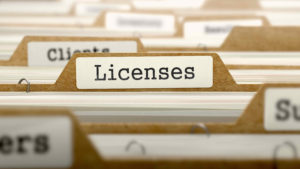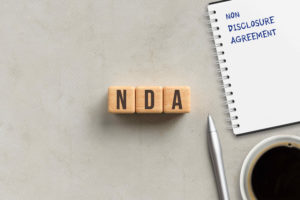Buying a business is no small task, and many first-time buyers are initially intimidated by the paperwork required to make a sale happen.
The good news is the paperwork, contracts and red tape required for buying a business are totally do-able.
You just need to stay on top of requirements, have patience and have the right help.
The last (and possibly the most aggravating) part of the paperwork you will come across in a business transaction has to do with the licensing involved when starting or running a business.
A very important note on licensing – you absolutely must have all your licensing in place before you take over as owner of the business. Any procrastination on your part will probably lead to major issues. Any procrastination on your business broker’s part could also be a problem. Any good business broker should be helping their buyers wade through the paperwork jungle. Some brokers leave their clients high and dry, postponing important licensing issues until the last minute. Your broker should be helping you get the information necessary to get the proper licenses and permits. If they aren’t, you might need to find better help.
Your licensing requirements will depend on where the business is located, what goods or services it provides and your role in the business itself. For example, a small pizza shop that does not serve alcohol will have to comply with licensing requirements from the Division of Hotels and Restaurants but not the Department of Alcohol, Tobacco and Firearms. If you are buying a contracting business, you may need to have the appropriate contractor license for your state. Each state, county and city will also require specific licensing requirements depending on what the business is and where it is located in relation to state, county and city boundaries.
Just like all of the other paperwork requirements we have discussed in previous articles – this is a great example of when a business broker is worth their weight in gold. As we already mentioned, any good broker should be helping you with licensing requirements or referring you to a licensing professional. They should also be advising you on when each part of the licensing process should be started and when it needs to be complete.
If you don’t want to pay the fees of a licensing professional, you should know that it is absolutely possible to do your own licensing – but it will take a good dose of patience and plenty of perseverance.
The best advice is to get all of the necessary licensing information from the seller (through your broker) and then go through each licensing requirement one at a time. You should print all applications regardless of whether or not you will be submitting them online as many government agencies have time-out procedures on their websites (so if you take too long to fill out your application online it will time-out and you will have to start over). Printing the applications allows you to fill everything out beforehand so you don’t have timing issues. You should also have everything in printed form and kept together because in many cases an application will require approval and signatures from multiple agencies – so it is best to take everything with you.
You should also understand that all government agencies are very large bureaucracies, and as such the red tape involved can be extensive and open to interpretation. What do we mean by “open to interpretation”? If you have a question on one part of a specific application, you might call one day to get an answer. The next day, when you speak to someone else in the same office, you might get a completely different answer. Although frustrating, this difference in opinion is totally normal. Just follow the instructions of the government agent you are currently dealing with, and try to deal with that one specific person every time (not always possible).
The best way to deal with licensing? Ask questions, lean on the experience of your business broker and stay on top of deadlines.
Do you have more questions about the licensing requirements in a business sale? Would you like to know more about what’s included? Ask us! Feel free to leave any questions or comments and we would be happy to help.
Michael Monnot
941.518.7138
Mike@InfinityBusinessBrokers.com
12995 South Cleveland Avenue, Suite 249
Fort Myers, FL 33907
www.InfinityBusinessBrokers.com











